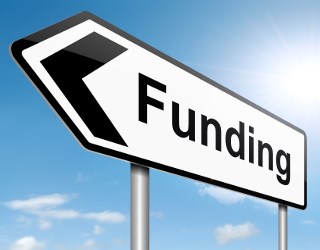 Defence & Security, Consulting
UNDP/PN/24/2021 - National Consultant – Policy Brief Expert- Fire Preparedness and Response
Defence & Security, Consulting
UNDP/PN/24/2021 - National Consultant – Policy Brief Expert- Fire Preparedness and Response
UNDP/PN/24/2021 - National Consultant – Policy Brief Expert- Fire Preparedness and Response
UNDP/PN/24/2021 - National Consultant – Policy Brief Expert- Fire Preparedness and Response has been closed on 19 Sep 2021. It no longer accepts any bids. For further information, you can contact the United Nations Development Programme
Bellow, you can find more information about this project:
Location: Nepal
General information
United Nations Development Programme
Defence & Security
Consulting
Closed
Timeline
10 Sep 2021
19 Sep 2021
Not available
Contacts
Description
| UNDP/PN/24/2021 - National Consultant – Policy Brief Expert- Fire Preparedness and Response | ||
|---|---|---|
| Procurement Process : | IC - Individual contractor | |
| Office : | UNDP - CDRMP - NEPAL | |
| Deadline : | 19-Sep-21 | |
| Posted on : | 10-Sep-21 | |
| Development Area : | CONSULTANTS | |
| Reference Number : | 83103 | |
|
Link to Atlas Project : 00061320 - Comprehensive Disaster Risk Management Programme | ||
|
Documents :
UNDP/PN/24/2021 - National Consultant – Policy Brief Expert- Fire Preparedness and Response | ||
| Overview : Description of the assignment: Nepal is prone to various disasters, fire being one of the most recurring. Between 1971 and 2018, 12,694 fire incidents were recorded as per DRR Portal of Ministry of Home Affairs: 39 incidences in one day as per NDRRMA in the month of November 2020. The fire incidence in urban areas is substantially increasing in recent years due to haphazard urbanization, decreasing water availability, unplanned densification, and industrialization. With increasing urban population and infrastructure exposed to fire hazard, the preparedness at different levels needs strengthening that encompasses from policies to the first responders. Though, human casualties due to fire is lesser compared to other hazards, the loss of assets is higher. During the discussion with the fire brigade officials, lack of firefighting equipment, inadequate and old fire engines, scarce skilled human resources, lack of financial investment on maintenance and upgradation are some of the challenges they face to respond to fire incident, where the situation is aggravated due to narrow lanes, clustered households and unchecked use of buildings that amplifies vulnerability to fire in urban areas. Fire services are response oriented with limited preparedness interventions amidst absence of the fire preparedness guideline and regulatory standards for different stakeholders that contributes to reducing fire incidences, thus saving lives and property. Increasing fire incidents at the household level are mainly through electric short circuits caused by lack of electrical system design and poor wiring including improper handling of kitchen fuels such as leakage of cooking gas and careless storing of petroleum products. Fire risks are higher in the old city core and poor neighborhoods, multiple families living in a single building and where construction material is dominantly timber and where houses are adjoined. Furthermore, gas cylinder depots and petroleum stations are either in the city core or in closer proximity to the residential and commercial areas that further exacerbates fire risk of urban population. Fire preparedness in commercial buildings and critical infrastructures including schools, cinema hall, hotels and restaurants are also limited or even non-existent. The water supply system has installed the fire hydrants; however, they are not seen functional or operational in firefighting at the local level. Further to this, the traditional firefighting mechanism such as ponds are also encroached decreasing the availability of water. The concrete surface and development of road and pavements in urban centers has led to increase surface runoff decreasing the percolation and leading towards declining the recharge the aquifers and ground water table. With the change in climate pattern, it has led to decreased rainfall and has led to increasing in dryness and drought increasing the fire risk along with that lack of fire preparedness in the municipal outskirts and are also possess increasing fire risk to metropolitan/metropolis. Amidst the above background vis-a-vis fire preparedness with existing urban infrastructures and capacity of fire stations, systems and services, this Terms of Reference (ToR) envisages to solicit technical support to undertake preparation of policy brief outlining the key policy gaps for fire related preparedness and response in local level. The policy briefs will refer to reviewing past fire incidences, documentation of fire incidences all over Nepal (UNDP/CDRMP), Rapid Vulnerability Assessments of Physical Vulnerabilities, documentation of Shared Learning Dialogues etc. Further to this, assignment also entails identification of potential risks and hazards that cause fire, areas that have high exposure and existing policies to address fore preparedness and coordinated response at federal, provincial, and local level. Further, this will also tap into elements that add vulnerability, people at risk, access/evacuation routes, first responders’ capacities, coordination between stakeholders engaged in fire response such as fire brigade, security forces, private water tankers etc. and their capacities. The policy brief will also capture readiness (fire risk reduction and readiness to respond to) and connecting to community and institutional level readiness and response practices and recommends toward more evidence-based policy formulation for enhancing preparedness and fire related response. The assignment will support on policy briefs which will lead to advocacy for better risk reduction and preparedness for effective response to fire risks at the federal, provincial, and municipal level. Project name: Comprehensive Disaster Risk Management Programme (CDRMP) Period of assignment/services (if applicable): 25 days (in total) from September to October 31st 2021 Proposal should be submitted by email to [email protected] not later than 1730 hours (Nepal Standard Time) of 19 September 2021 mentioning reference No. UNDP/PN/24/2021 – Policy Brief Expert- Fire Preparedness and Response .
| ||
Receive Daily Tenders and Grants notifications
Subscribe nowFeatured tenders
-
 Tender
17 Feb 2022
Nepal
Re-advertisement: Request for Expression of Interest Design and Implement Training on Gender-Sensitive Reporting on Migration for Nepali Media Personnel
United Nations Capital Development Fund
Tender
17 Feb 2022
Nepal
Re-advertisement: Request for Expression of Interest Design and Implement Training on Gender-Sensitive Reporting on Migration for Nepali Media Personnel
United Nations Capital Development Fund
-
 Tender
26 Jan 2022
Nepal
Request for Expression of Interest Purpose: Design and Implement Training on Gender-Sensitive Reporting on Migration for Nepali Media Personnel
United Nations Capital Development Fund
Tender
26 Jan 2022
Nepal
Request for Expression of Interest Purpose: Design and Implement Training on Gender-Sensitive Reporting on Migration for Nepali Media Personnel
United Nations Capital Development Fund
-
 Tender
10 Sep 2021
Costa Rica
Supply, Delivery and Installation of Dual Channel AIS Receiver & Antenna for AIS Coastal Receiver for Philippines, Cambodia & Timor Leste
United Nations Capital Development Fund
Tender
10 Sep 2021
Costa Rica
Supply, Delivery and Installation of Dual Channel AIS Receiver & Antenna for AIS Coastal Receiver for Philippines, Cambodia & Timor Leste
United Nations Capital Development Fund
-
 Tender
03 Feb 2022
Costa Rica
REQUEST FOR EXPRESSION OF INTEREST (EOI) - HQ22NF066 for HEAVY DUTY TABLETS
United Nations Capital Development Fund
Tender
03 Feb 2022
Costa Rica
REQUEST FOR EXPRESSION OF INTEREST (EOI) - HQ22NF066 for HEAVY DUTY TABLETS
United Nations Capital Development Fund
-
 Tender
25 Jan 2022
Costa Rica
UNICEF Request for Proposal no. 2022-9172874 Study on Private Sector Engagements & Partnerships relating to Ending Online Violence against children in MENA Region
United Nations Capital Development Fund
Tender
25 Jan 2022
Costa Rica
UNICEF Request for Proposal no. 2022-9172874 Study on Private Sector Engagements & Partnerships relating to Ending Online Violence against children in MENA Region
United Nations Capital Development Fund
Get free access to our Tenders & Grants Database
Our service is free of charge and will always be
Join NowDonors
-
 AFRICAN UNION
AFRICAN UNION
-
 EUROPEAN BANKING AUTHORITY
EUROPEAN BANKING AUTHORITY
-
 INTERNATIONAL BANK FOR RECONSTRUCTION AND DEVELOPMENT
INTERNATIONAL BANK FOR RECONSTRUCTION AND DEVELOPMENT
-
 INTERNATIONAL FOUNDATION FOR ELECTORAL SYSTEMS
INTERNATIONAL FOUNDATION FOR ELECTORAL SYSTEMS
-
 MINISTRY FOR FOREIGN AFFAIRS FINLAND
MINISTRY FOR FOREIGN AFFAIRS FINLAND
-
 NORDIC INVESTMENT BANK
NORDIC INVESTMENT BANK
-
 NETHERLANDS ORGANISATION FOR INTERNATIONAL COOPERATION IN HIGHER EDUCATION
NETHERLANDS ORGANISATION FOR INTERNATIONAL COOPERATION IN HIGHER EDUCATION
-
 UNITED NATIONS ENTITY FOR GENDER EQUALITY AND THE EMPOWERMENT OF WOMEN
UNITED NATIONS ENTITY FOR GENDER EQUALITY AND THE EMPOWERMENT OF WOMEN
-
 UNITED NATIONS PROGRAMME ON HIV/AIDS
UNITED NATIONS PROGRAMME ON HIV/AIDS
-
 UNITED NATIONS SYSTEM
UNITED NATIONS SYSTEM